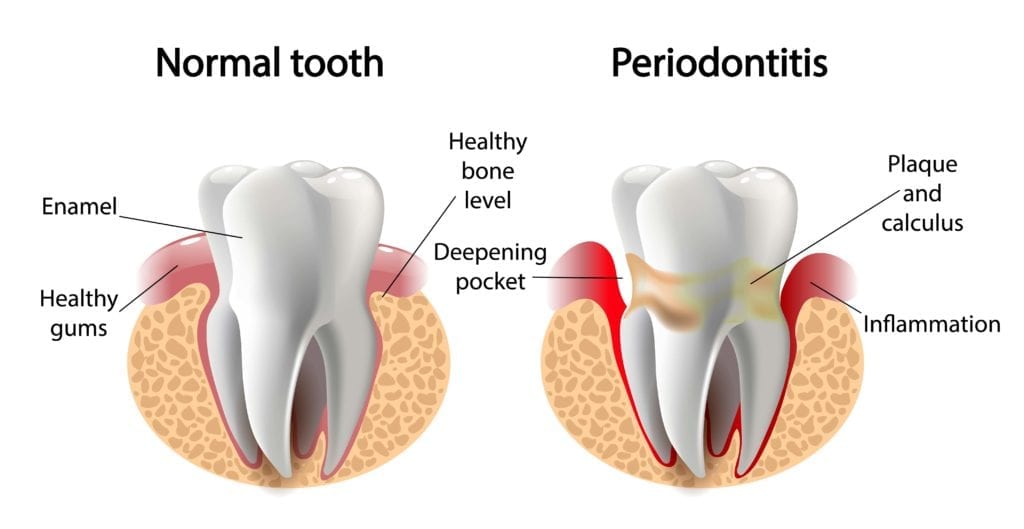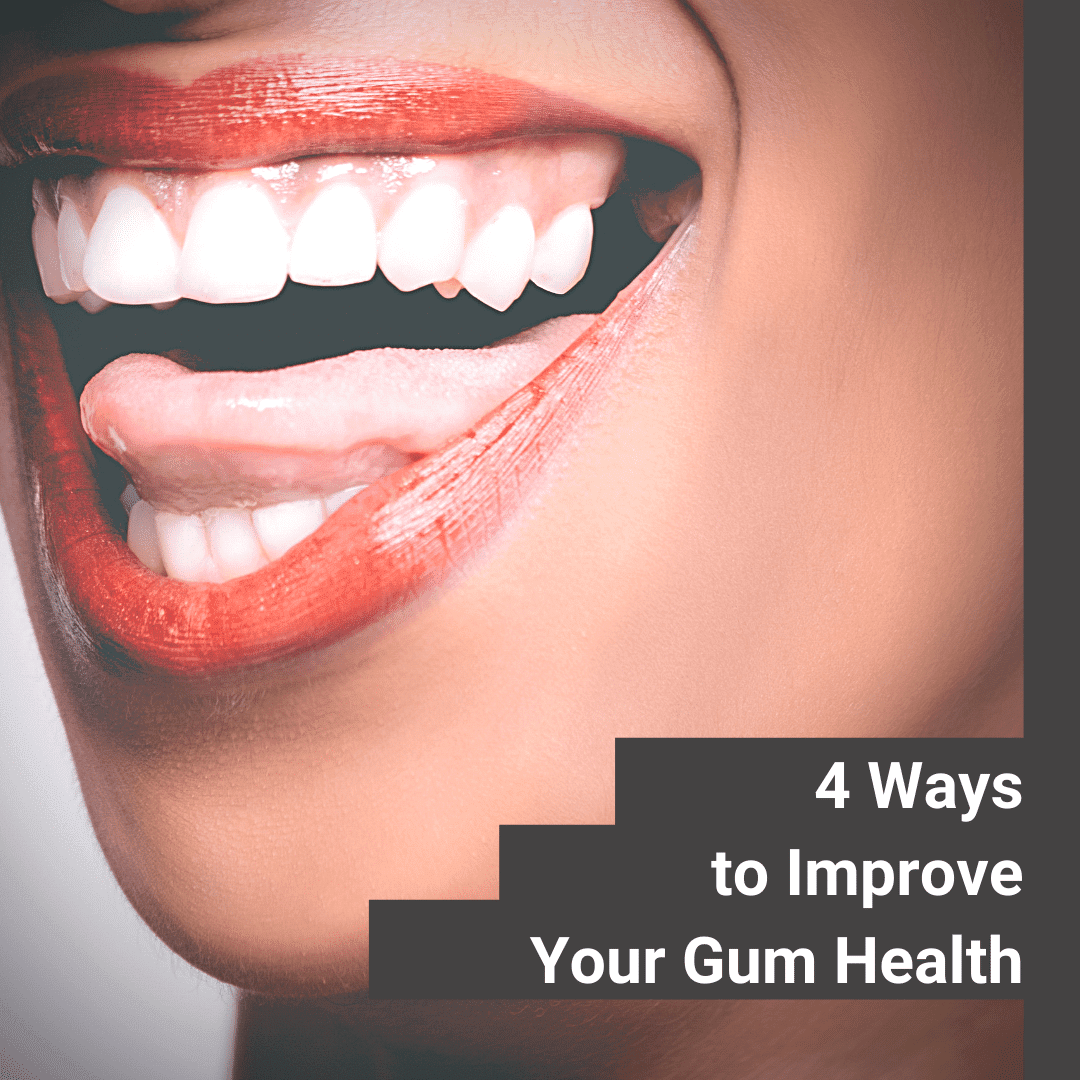Did you know that your dentist is not only concerned about the health of your teeth, but the health of your gums as well? Your gums play an important role in your oral health and can even affect the health of your teeth. In fact, your gums are susceptible to something called gum disease. Unfortunately gum disease is extremely popular, with the CDC estimating that 47.2% of adults over the age of 30 being affected by some form of gum disease.

There are two different forms, or stages, of gum disease. The first stage is known as gingivitis. Gingivitis is a mild form of gum disease which can cause symptoms like red gums that bleed easily and that are starting to recede. The second stage is known as periodontitis, which is the advanced form of gum disease. Periodontitis causes the same symptoms as gingivitis, however it can also cause swelling, tenderness, extreme gum recession, pain, and even loose teeth. While gingivitis can usually be reversed with the proper treatment, periodontitis cannot and it can only be managed to prevent it from getting worse.
Gingivitis and periodontitis are the two main reasons why your dentist is concerned about your gum health. Luckily, there are some things that you can do to improve your gum health and reduce your risk of developing gum disease, including:
Brushing Twice a Day
While you may think that brushing your teeth is only beneficial for preventing cavities, it can also help to reduce the risk of gum disease. This is because brushing your teeth removes plaque, as well as the bacteria responsible for causing gum disease. By brushing twice a day for two minutes at a time with a fluoridated toothpaste, you can minimize the amount of bacteria that accumulates.
Flossing Daily
Even though brushing your teeth can remove plaque and bacteria, there are places that a toothbrush cannot reach. In order to remove plaque and bacteria from these spaces, you will need to use dental floss. Unlike brushing, however, you should only floss once a day to prevent gum irritation. The best time to floss is at night just before you brush your teeth and go to bed. Flossing your teeth before brushing allows the fluoride from the toothpaste to spread between the teeth and along the gum line.

Keep Up with Dental Cleanings
In order to further minimize the amount of bacteria in your mouth, you will need to stay caught up on dental cleanings. In most cases, you will need to have your teeth professionally cleaned every six months, however certain cases may require more frequent cleanings. Professional teeth cleanings are necessary because they remove plaque, bacteria, and hardened plaque known as tartar. In fact, tartar can only be removed during dental cleanings since it is too hard to be removed by a toothbrush.
Use Mouthwash
Using mouthwash to rinse your mouth, especially after meals, can also help prevent gum disease. There are several over the counter mouthwashes that coat the teeth and make it more difficult for plaque and tartar to accumulate on their surface.

Dr. Edward Formica has been practicing Dentistry in Hemet since he graduated from UCLA in 1990. He is a member of Tri-County Dental Society, American Dental Association, California Dental Association, Hemet/San Jacinto Exchange Club, Healthy Valley Foundation, Valley Trails Alliance and the Western Science Board.


Recent Comments